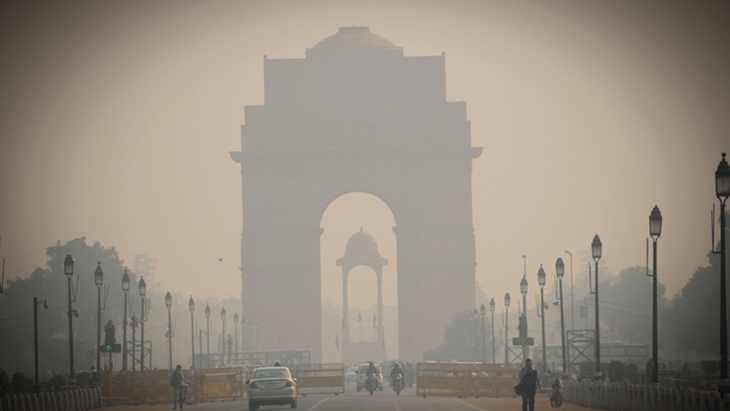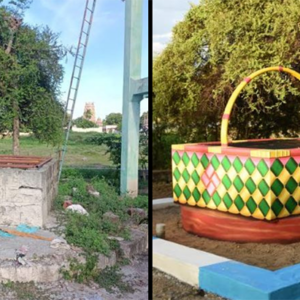
A report from Bloomberg shares that 132 cities in India have pollution levels that are considered lower than the national standards. Moreover, this number has gotten higher from the original 102 cities in the same category just two years ago in 2019, according to the Centre for Research on Energy and Clean Air (CREA).
Researchers have been searching for ways to improve air quality in countries all over the world that need them the most for years. And like in India, smog happens to be one of the biggest air pollutants in the country.
Recently, scientists have developed a spray of common bacteria and fungi which works to quickly biodegrade agricultural waste in the fields of India. This enriches the degraded soils while saving the country thousands in materials and labor costs at the same time.
Moreover, the spray is also helping farmers eliminate their usual burning of post-harvest waste, which tends to be one of the biggest contributors to one of India’s major societal issues, smog.
Reports share that the most polluted air of any city in the then entire world is New Delhi, while India alone has 26 out of 30 of the world’s most polluted cities in terms of air quality.
One main reason for such high numbers in the country is mostly due to the amount of farmland in the north-Indian states like Punjab, Haryana, Utter Pradesh, and Rajasthan. They are the highest rice and wheat producing areas for the entire country and most of the world even, and farmers tend to burn whatever stalks and leaves are left from the last harvest to make it a quicker turnover to clear their fields for the next planting.
That’s 5.7 million acres of rice paddy undergoing “stubble burning,” despite the fact that it’s supposedly illegal and has been for many years. But since there is hardly any penalties for the farmers, they continue to burn their fields at an extensive amount every year.
The company behind this groundbreaking new solution is Nurture.farm. Considered an ag-services company, they’ll pioneered a new way to deal with the stubble burning and air pollution issue at the same time. Named PUSA Decomposer, it’s made from over 7 species of fungi and bacteria that already present in Indian soils. This microbial spray was developed by the Agricultural Research Institute in Delhi, and it breaks down the leftover stubble in just 3 weeks. Then 8 days later, the knee-high rice stalks are said to simply disappear.
So far, Nurture has been working with relatively small farms, but as a result, there has already been a reduction of burning that has prevented a whopping 141,000 tons of ash, 2,000 tons of other particulate matter, and 1 million tons of CO2 from entering India’s air.
Labor and World Saving Device
One of the best things about this new product is that once the stubble is decomposed, it can be fully-reintegrated into the soil. Another world-threatening issue is the depletion of soil matter, and Nurture is now one out of 12 ag-tech companies with a license to attempt to integrate the PUSA decomposer into India’s highly polluted society.
The stubble is now one of the biggest, and probably easiest ways to restore the soil’s nutrients. Plus it’s a lot cheaper than buying and using artificial fertilizers. A study from the International Maize and Wheat Centerfound that ‘if rolled into balls and stacked atop one another, the stubble from India’s fields would arrive at the moon.’ This means that should there be an alternative to burning, then India could already lessen its ag-related emissions by 78%.
Farmers that are registered with Nurture can now avail of the totally free mechanized spraying service, who will apply the PUSA decomposer to their fields, which means removing most of the use barriers for at least 25,000 famers who use Nurture for their 5 million acres of land in total.
Nurture’s data shows that compared to burning, it has already made a major advances already where it’s been used. Already, it has had a 25% reduction in costs for farmers from no longer needed to buy artificial fertilizer. There has also been a 20% increase in the farmer’s income from their ability to rotate their short term crops, such as their wheat and rice cycles.
COO of Nurture, Dhruv Sawhney, said, “It was exhilarating to see that in all the fields where the spraying protocol was followed, the stubble started to decompose within just eight days. This garnered the farmer’s trust and appreciation, which was highly motivating for us.”
He added, “We’ve emerged more confident and determined post phase-1 of the initiative and will continue our efforts to develop the product and our tech capabilities to eliminate the environmental hazard of crop stubble burning in the coming three years.”
To see more on Nurture, watch the video below:
What are your thoughts? Please comment below and share this news!
True Activist / Report a typo


